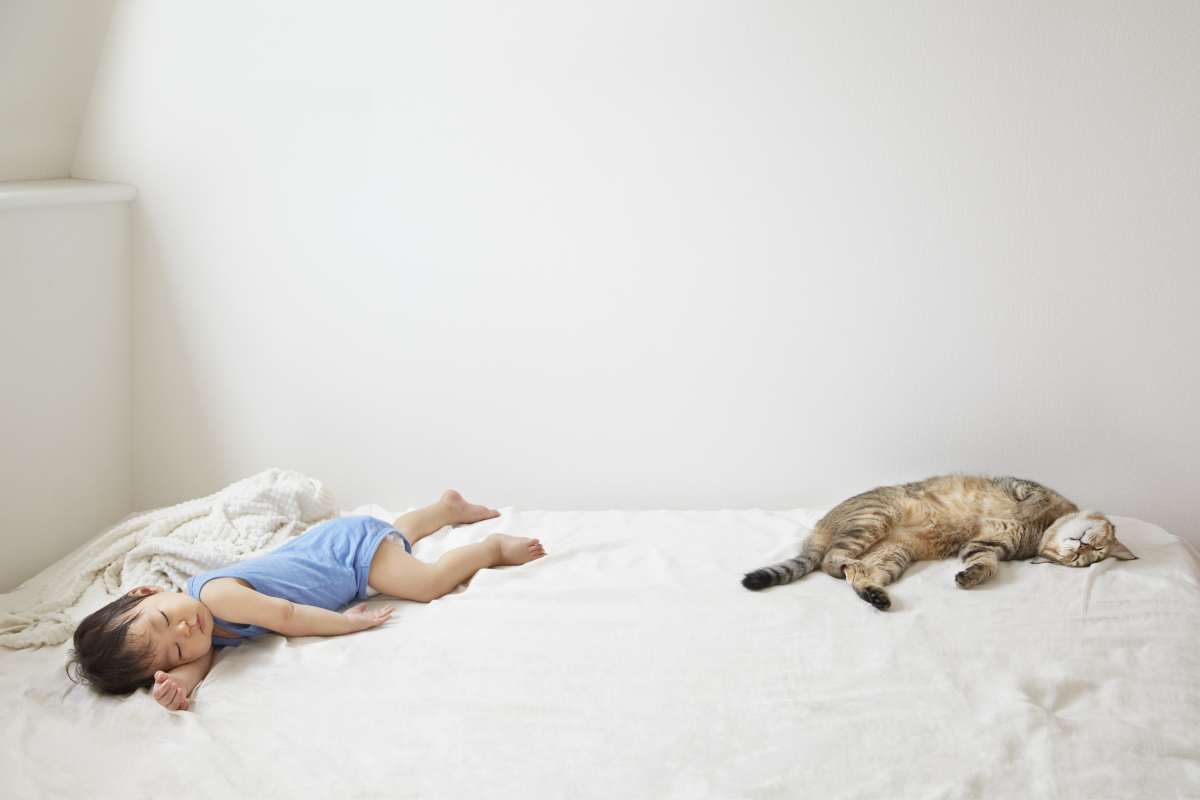Sharing bed with your pet might seem good for your sleep – but this study says otherwise

Many people save a spot on their beds for their pets to sleep in, enjoying their furry pal’s companionship even during snooze time. While it may seem like a cozy habit with potential emotional benefits, researchers wave a red light on sharing a bed with your pet. A 2024 cross-sectional study published in the journal PubMed Central found that co-sleeping with your pets may induce direct and stress-buffering effects in humans. Pets are an integral part of families in the U.S. and are treated like any other member of the household. However, experts suggest pet owners draw a line when it comes to snuggling during bedtime.

A team of researchers from the Department of Psychology of Trinity College surveyed participants with questionnaires that assessed their sleep characteristics, perceived sleep quality, sleep efficiency, insomnia severity, and multidimensional sleep health. 1,591 people participated in the survey, out of which 758 reported sleeping with their pets. The findings suggested that co-sleeping with pets was associated with poorer sleep quality and greater insomnia severity. These sleep interruptions were independent of the individual’s bond with the pets, and the negative impact on sleep increased with a greater number of pets at home.

56% percent of dog owners report sharing the same bed with their dogs, per a 2011 study. While the comfort of co-sleeping varies from one pet owner to another, it has been found that pets in bed increase human movement. Another 2020 study published in the journal stated that the increased movement can disturb sleep, but the owners rarely remember waking up due to their pet’s movement. When a pet snores, slobbers, or overheats the bed, it can leave a person fatigued and longing for a nap during the day. On the other hand, cats are often active during the night hours and are not an ideal sleepmate.
Furthermore, pets tend to carry pollen and dust in their fur, which may cause or aggravate allergies and asthma. Disease spread is another major concern. Germs like bacteria, parasites, and fungi can spread from pets to humans through contact with feces, licking the face or open wounds, scratches, and bites. In the U.S., disease spread from pets usually occurs via fleas, ticks, ringworm, and skin infections due to mites. Children or even adults shouldn't share a bed with an aggressive dog. Even though kids and pets make the best pair, the former can be exposed to germs, leading to illness since their immune system is still developing.

In case your pet is the apple of your eye and simply cannot part at bedtime, a Healthline report has provided a few tips and measures. To get a sound sleep without interruptions from your pet, it is recommended that pet owners walk their dogs or cats before bed and encourage healthy sleeping habits. Training them to wait for permission to get on the bed also works. Discouraging aggressive behaviors and being consistent with rules to keep them off the bed, like not allowing them under blankets or on their pillow, can go a long way. To maintain hygiene, changing bed sheets regularly and deworming your pet are vital.